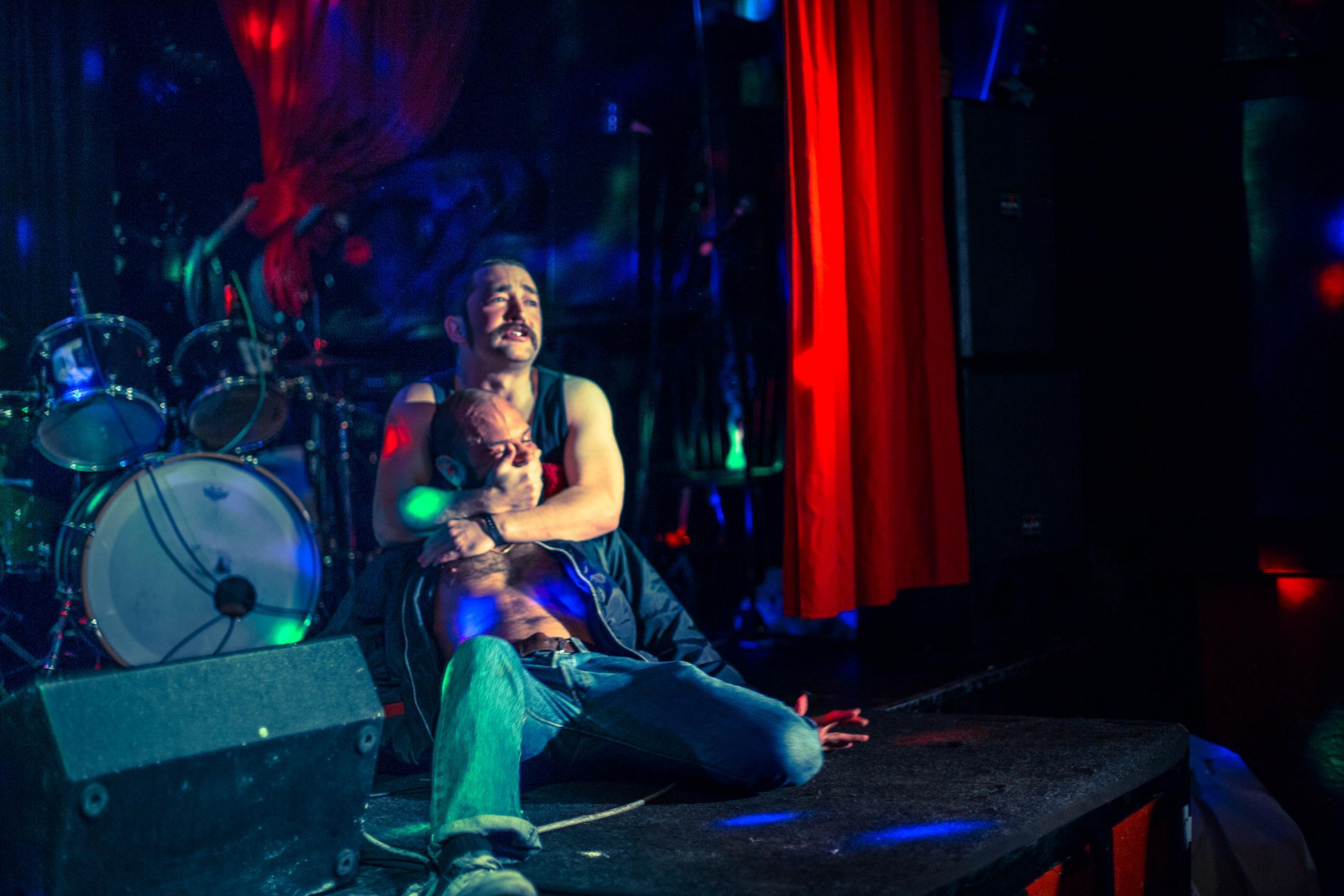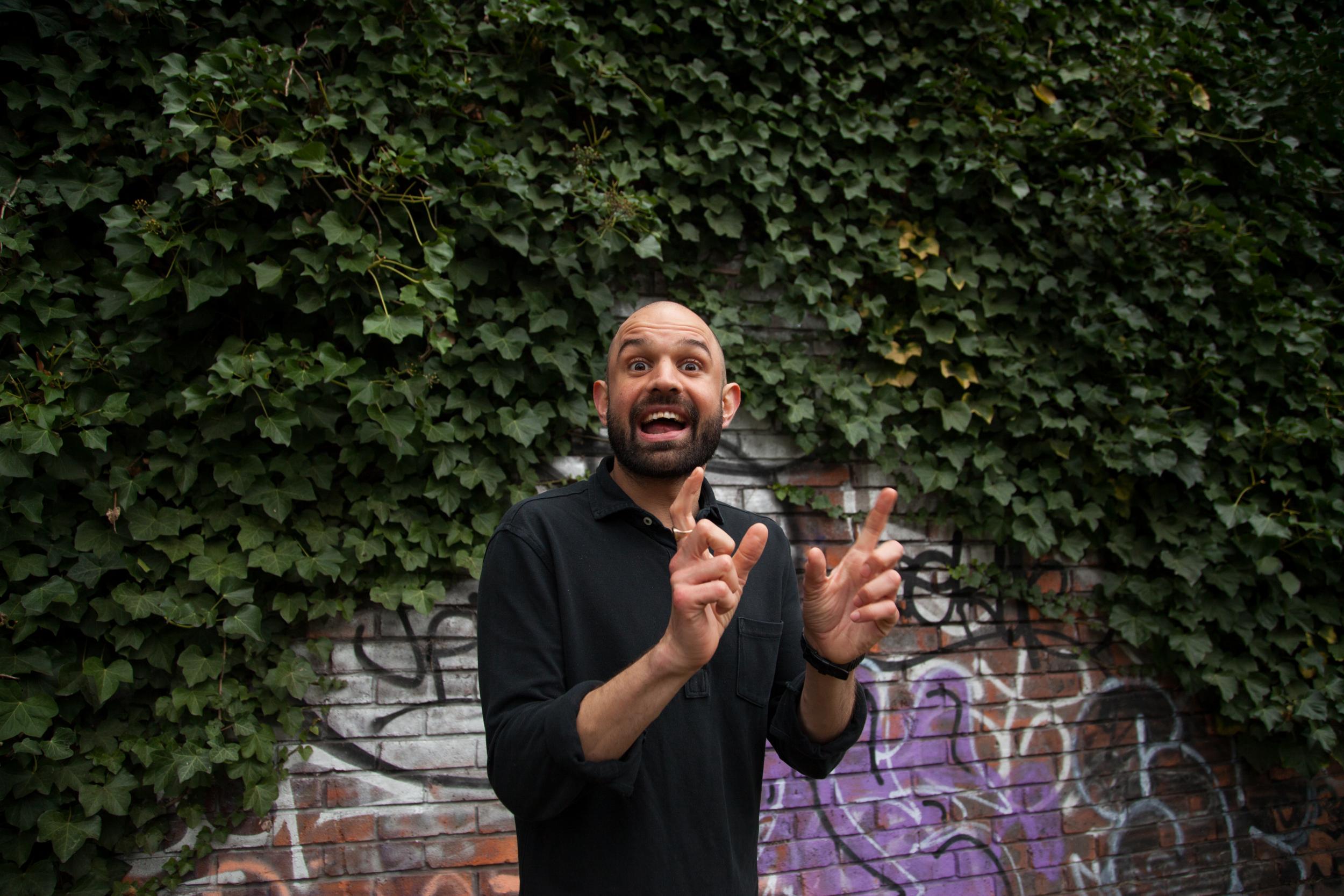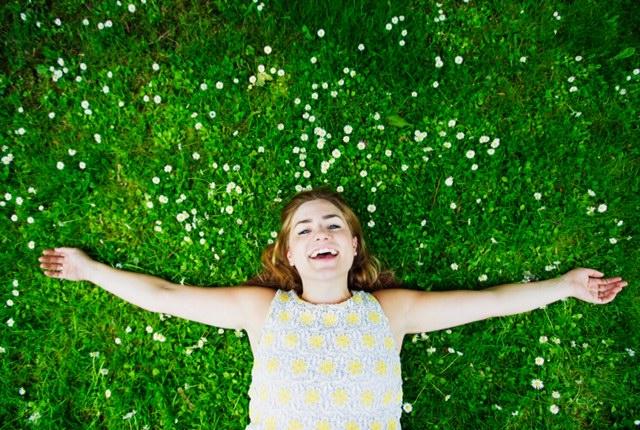Stand-up comedy is no longer exclusively a man’s game, but is it caught in a cycle of masculinity?
For an industry blighted by depression and suicide, the 'mild antidepressant’ effect of comedy sounds like just the thing that might attract us. And what else is blighted by depression and suicide? Why, masculinity, of course

“So I kicked her in the p***y.”
Not my words, folks; the words of Dave Chappelle, taken from one of his two recent Netflix specials. Near the opening of Equanimity, he says this line, stating with put-on arrogance that he can just think of a punchline and write the rest of the gag later.
Chappelle’s a hugely important comic to me, someone whose work shaped my teenage political understanding, sense of humour and, worryingly, dialect. I delighted in these two latest specials – the seriousness woven into the silliness, the interplay of self and society, the hip-hitting self-satisfaction.
But that line. “So I kicked her in the p***y.” It gets a laugh, at first, from surprise as much as for the dirty word. But when it comes back, as the punchline as which it was promised, I found it sorely disappointing. It wasn’t craftily subverting our expectations. It was an abrupt call-back ending a well-considered and jauntily-paced story about the differing degrees of privilege he experienced in his youth. It felt too easy, almost lazy, to cap the tale with an act of wanton sexual violence against an anecdotal woman.
Perhaps Chappelle was using this as a “f*** you” to what modern comedy has supposedly become. He spends a lot of time in both this show and its companion, The Bird Revelation, coolly prodding at snowflake culture and fourth-wave feminism.
For balance, The Bird Revelation opens with five or so minutes of jokes about rape; considered, informed, hilarious jokes about the exposure of the culture of sexual abuse across the nation. The ire is on the rapists and the society that allowed them to loom large.
But, with “so I kicked her in the p***y”, the female, while being physically, sexually attacked, is also the butt of the joke.
Looking for an opening to this exploration of masculinity in comedy, watching and then rewatching the specials, I was startled. Could a clearer example of the dominant maleness in stand-up come any clearer than this, an alpha dude making a full arena laugh at the hypothetical violent assault of a woman?

I had a pretty rough autumn last year. While plundering my life for honest material for a new stand-up show, I brought up some significant and very much unprocessed trauma from my teenage years. Perhaps unsurprisingly, I fell into depression. A few weeks later, to add to my mental melee, I was broken up with.
The day after the dumping, my double act had a gig in south-east London, on a tall stage in a full room in front of 100 paying people. I was petrified, my broken heart pounding. Would this audience of expectant strangers watch me crumble?
One of our sketches involves my partner smothering me to death for being uptight about kitchen cleanliness, as a metaphor for repression. That night, I threw myself into this tortured demise with a gusto like never before. The room was on board, and I went offstage feeling like I had my health in my hands.
Two days later we did the same bit in the same corner of the city, and I knew full well that my heartbreak had the better of me. I cried in the toilets before the show, we plodded our way half-heartedly through my murder, and I did my best not to openly bawl as we left the stage. I was broken.
Why am I telling you this? It is, after all, not an article about mental health in comedy. That ground has been covered, unsurprisingly given the sheer number of high-profile cases of depression, bipolar and suicide in the industry. The reason, instead, is the root cause of my mental health issues in the first place.
“Toxic masculinity” is an oft-maligned phrase that’s frequently used in quotation marks in Breitbart articles, insinuating that it is a non-existent phenomenon. I would argue otherwise. Whether while being attacked in a playground by 15 footballers, receiving death threats for kissing a boy at a party, or feeling like I couldn’t be open about my pain and cancel a gig I knew I didn’t have the heart for, my life has been shaped by, in turns, aggressive and claustrophobic constructions of maleness.
And so it’s strange, perhaps, that I’ve come to have a career in comedy. Stand-up, in particular, is a world in which the mode of communication is particularly “masculine”, more so than any other artful medium. By the way, I don’t mean “performed by men”, although historically that is the case. Instead, I am relating it to our traditional expectations of the gender.
To perform stand-up comedy is to single-handedly dominate a room full of people. This otherwise exists in poetry and perhaps performance art, but in these forms the audience is rarely involved in the dialogue – even if in comedy it is to respond purely with laughter. More than that, in other art there is an emotional openness that is all but outlawed in many comedy environments. It is replaced instead with a concise monologue, generally from an unflappable persona.
This is, of course, not to say that girls aren’t just as likely as boys to seek laughter, nor that women aren’t just as likely as men to aspire to be a comedian. However, it is the competitiveness of comedic ability in social situations that is much more male than female. For generations, men sat in monogendered drinking spaces at the end of the day, each trying to get the biggest laugh, frequently focusing on what they’re going to say to top the current story rather than fully engaging with it.
Indeed, to make a room of people laugh is to assert supremacy over everyone else. It is to say: I can surprise you. I can make you blurt out. Timed right, I can make beer come out of your nose.
You could argue that, in this country at least, the very highest echelon of comedy is not overflowing with alpha males. Indeed, once you hit the chat show-hosting fame of a McIntyre, Norton or O’Grady, a camp femininity is not just acceptable, but encouraged – and still preferable to actual females, of course. At prime time, we as a society no longer need the ability to dominate a stadium. We’d rather watch somebody we can imagine sharing a pot of tea with.
But on stage, command is vital, although that ascendancy is usually implicit. A friend of mine’s excellent opening gag involves staking a claim as the alpha male in the room. And though it surprises us, she’s right – when she says it, Chloe Petts is the only one standing on a stage, holding an amped-up microphone, plastered in light in an otherwise dark room. However you look at it, she’s in charge.

But are female comedians treated with the respect that would likely be given to a man in the same spotlit position? I speak to stand-up comedians, podcasting partners and longstanding friends Harriet Kemsley (above) and Sunil Patel about this.
After we discuss how young boys showing vocal confidence are called “assertive” yet girls with the same traits “bossy”, Harriet, currently reading about women in power (“But I’ve only read the first half so there might be a big twist!”) points out: “Some men don’t like the idea of a woman being funnier than them because that’s their thing and that’s where they take a lot of power from. Sometimes, when you come onstage, people will literally go to the toilet. I’ve had that in particularly clubby, traditionally male environments, where men will get up as soon as I get onstage and be like, ‘oh great, a woman, time to go to the toilet.’”
Sunil, surly and surely as ever, takes over. “In a strange way, the kind of men that don’t like women being funny really like strong, assertive women onstage. They really appreciate somebody who has ‘male’ traits of assertiveness and boldness, as a woman. And in a way I think we’re conditioned to respect male traits more than traditionally female traits.”
“The only way I’ve coped with stags and hens is just by being a different sort of comedian to who I was when I didn’t cope with them,” he continues. “More direct, punchier, not letting them get a word in edgeways, and make sure everyone else is laughing enough that they can’t do anything. Not letting anyone in. Comedy is a stereotypically masculine art form. It’s about reducing everything down to a point where you just bang out really funny lines one after the other, to stop other people getting a word in, just keep them laughing so they can’t do anything.”
Is this why there is so often a maximum (but not minimum) of one woman on a weekend comedy club bill or TV panel show, I wonder? Promoters and producers assume that only men can dominate these combative spaces because they are more likely to be assertive and bold and control the space accordingly.
I ask Harriet if this pigeonholing is something she’s come up against. “It makes you a genre, if you’re the only woman on the bill,” she says. “And as a performer, it’s just not as interesting. Like, I would like to work with women, and from I think September to November I didn’t have a weekend gig with another woman. It puts a lot of pressure on you to be good ‘for women’ rather than to be good for yourself.”
Men, if they were the only man onstage at any given gig, have generations of hilarious famous blokes to back their gender up as “funny”. While there have been many excellent female comedians over the years too, their lack of consistent platforming means that seeing one unfunny woman on a bill makes it easier to conclude, however ludicrously, that “women aren’t funny”.
I talk to fellow comic Kelly Convey about all this too. Speedily rising through the industry, Kelly is notable for her acerbic wit, teenage allegiance to “chav” culture and, in the show she’s working on currently, making a stand on behalf of traditional gender roles.
Describing her experience of being one of very few women at most gigs, she says: “Old-school comics have asked me whose girlfriend I am in the green room, not realising I’m an act. But I don’t really even bat an eyelid, it doesn’t bother me in the slightest – I go out and do my job and let them get on with telling the same dad jokes that they’ve been telling for 20 years.”
But, as previously mentioned, and unlike so many female comedians, Kelly doesn’t ascribe to many of the current notions of feminism. I ask her if she feels her job, working nights in male-dominated environments, has affected her ability to be “the good wife”. Unsurprisingly, given her casual confidence, she doesn’t see it that way.
“Not at all, in fact, being a comedian is the best job to achieve this and I explore this in my show,” she says. “I’m home all day, fulfilling my need to make sandwiches and iron and prance around town like a lush waving to all the shop-keeps like I’m Belle from Beauty and the Beast. I get home, put dinner on, see my man’s happy and then, like Batman, change into my alter ego and head to pub and bark out some dick jokes.”
It’s worth noting that Kelly has slotted herself into masculine environments for all of her professional life. Indeed, as she puts it: “I worked in a executive role for some of the biggest corporations in the world for 10 years. I have been there, done it, got the non-iron suit.” As such, there’s no great surprise that she can give it as good as the old-school old men comics telling 20-year-old dad jokes.
The imbalance of power and empathy between genders is one of humanity’s most potent issues, highlighted but by no means brought about by the #MeToo campaign. One way that this is constantly upheld is in the platforming of voices. If we are only rarely given a woman’s perspective, it is easy to undermine or underappreciate their societal significance. If, however, they were given a fair showing then maybe we as a society would have a better idea of our shared ills.
This isn’t only true of comedy; of course, it’s true in almost every area of employment and especially in positions of respect and artistry. For example, if I worked in film I could have a field day writing about the travesty that, in 2018, we have only the fifth female Best Director Oscar nominee ever. But I don’t, I work in comedy, so will only passive-aggressively state it in passing.
I have such imbalance in mind when I meet Adrian Gray. He is a white, straight, cis-gendered, Oxbridge-educated man. Or, if you like, “the establishment”. As such, I felt compelled to ask him what unfair representation meant for him and his career. “I’m perpetually benefiting from various structures and prejudices and all these things,” he said with searing self-awareness.
Adrian, a warm if pensive person, recently made a short film about masculinity, Macho Man (below), in which he plays a foolish, foppish gent doing his best to learn about his gender. Onstage, too, there is another Adrian: a colder character, more distant and critical. More masculine, you could say.
I put it to him that it’s interesting that both him and I, beta boys with feminist feelings, put ourselves in a position of alpha dominance on such a regular basis. “It could be that in my every day life and my social life, I don’t feel fully in control of social situations in a way that I would if I was more of an alpha type,” he responds.
“So going onstage is my way of experiencing that and feeling more satisfied in that sense, because it’s a context where I’m allowed that space and I’m allowed to be someone else, someone who in some ways is more like that alpha type.”
“So we’re playing out a kind of a fantasy,” I excitedly chime in, feeling like we were onto something. He carries on: “It’s good that there’s the option to do that. It’s relatively consequence-free. I guess I’m in a nice position that I don’t feel like I have to change my personality in real life, I don’t feel pressure to be really alpha in conversation, but then I have the option to go onstage and do it. Maybe that’s a good setup we’ve come up with.”
And maybe that’s the same reason we are seeing a new wave of women enter the stand-up circuit. If we are all creating a fantastical dynamic onstage anyway, one that involves taking charge of a room full of people, it makes sense that women, so often sidelined when it comes to chances of real power, want to get their time onstage too.
So I ask Adrian if he feels that this current flux of women into comedy was related to a greater acceptance of less “masculine” traits on a stage – the empathy and emotional openness exemplified by John Robbins and Hannah Gadsby’s recent Edinburgh Comedy Award win, or the longstanding success of Josie Long or James Acaster’s heart-driven kindness and whimsy.
“This might be stuck in an echo chamber, but it feels like people are more open to gender fluidity and the breaking down of gender norms a bit more,” he says. “If you live in a world where people are more relaxed about those things, people will be more willing to be vulnerable onstage, and women will feel more confident and able to get onstage. Maybe that is just a reflection of a general, slow change of attitudes.”

I speak to Darren Harriott about this too. He has flown through the comedy echelons in recent years; having first shared a gig on the open-mic circuit with him a year and a half ago, it was amazing to see him end 2017 with a Best Newcomer nomination at Edinburgh and an appearance on Live at the Apollo.
“Most female comics that I know, even the ones that onstage come across as ‘girly’ or ‘delicate’ if you will, they have a drive or desire that is f***ing tough, a shell that is seriously tough,” he says.
“You look at all the female comics who do the circuit, and I’m not talking about your under-35s, pretty, good agent, forget them ones – they’ll get their own audience and do tour shows from TV exposure, and won’t be doing stag and hen dos just to get by like the generation before. I’m talking about the over-40, no agent, haggling for Christmas gigs, wanting to do as many corporates as they can. Those ones are battle-worn. They’ve been doing comedy about 20 years, they’ve gone into rooms of rugby players shouting, ‘show us your tits.’ They are war-torn warriors.”
To keep going for 20 years in any job, you’ve got to have a die-hard attitude and a thick shell, let alone when plugging away in an industry that demands the fleet of mind and constant control that comedy does. It’s a shame, really, that such human factors are generally considered male – but that’s what we expect of our leaders, and our leaders, over the course of history, have been overwhelmingly male.
Darren himself is affable and warm onstage, but speaks with a certainty almost exclusively seen in men. He is tall, black, well-dressed, good-looking – a definite attention-grabber. More than that though, he has lived his entire life in very masculine spaces: he has a family history of selling drugs, has worked as a bouncer and, in his own words, “was always seen as the tough kid in school”.
But in his most recent show, despite his easy control of the room, he speaks candidly about, among other things, his relationship with his mother and the death of his father. The latter of these has become something of a common trope in long-form comedy shows in the past decade, with (particularly) young male comics framing shows around the upset and regrets caused by the passing of their father.
This kind of emotional openness is unusual in men. I, like many better-qualified real-life sociologists before me, would go as far as to say that expressions of vulnerability are largely non-existent in male-male friendships and familial relationships in Western society.
What most surprises me is that this is what Darren’s like. In real life. For example, we speak at length about the intricacies and complications of his family, stuff I would never have expected a dominant dude to tell me, especially one I barely know.
But most interestingly for me, speaking of his father’s suicide, Darren says something that blew my fragile little mind. “I knew I had to talk about my dad. Because it’s the reason I do stand-up.” Obviously, I pry a little further.
“I’ve always said that there’s pieces to my heart. I’ve got a big spot for my mum, big spot for my dad, rest of the family, brother, friends. But I’ve always said that the dad part, it’s just gone. So I do stand-up because I’m trying to fill that black hole. It’s almost like a mild antidepressant, when you do comedy.”
A mild antidepressant. Certainly, when I was heartbroken and fictionally murdered onstage, the adrenaline and audience’s goodwill kept me going for a bit. Similarly, I can’t deny that when I pulled myself onto the stage the second time that week, I was trying to fill a void. I failed. Miserably.
For an industry blighted by depression and suicide, “a mild antidepressant” sounds like just the thing that might attract us. And what else is blighted by depression and suicide? Masculinity, of course.
We, as men, barely talk about our issues openly, honestly, ever. We divert attention from them, or sweep over them, or dump them all on our partner and never let anyone else in. We also frequently make jokes to hide what’s really going on, or listen to them to take our mind off our own garbage.
Time and time again in the conversations that I had while exploring this issue it was made glaringly obvious to me that comedy is escapism. It’s easy to forget this fact when you’re in the cycle of making hour-long theatrical shows for the Edinburgh festival. In this forum, people want to be challenged; they want to piece an artful narrative together; they want to cry with you about your dead dad.
In Dave Chappelle’s specials, while he covers ground that he knows is problematic – transgender issues, feminism – he is afforded the time to weave in honest and hard-hitting tales of the abuse of African Americans, threading his own intersectionality through the piece and fortifying the joke-laden narrative with truthful, artistic elegance.
But would this work in a 20-minute set on a Friday night at the Comedy Store? Good lord, no. We’ve had a long week at work, mate. Chatting about your genuine pain, reminding us of our own? F*** off!
And so some of us with, as Darren puts it, a “black hole” to fill – perhaps from unresolved grief or racist abuse or patriarchal oppression – rather than understand that hole and accept it, we choose to plug it with the rush of adrenaline and illusion of love that we feel from an audience. Or, indeed, we go to a comedy club and pay for a bunch of comics to pull a rug, a patchwork of jokes, over the void.
Or, as Adrian suggests, the comedians among us that aspire to have greater control, who have longed for the ability to be the biggest in the room but never had the boldness to do so, can get onstage and play at it. And this is surely true of so many women in comedy too – how exciting for all of us who have been shafted by the patriarchy in the past, to get to utilise it for our own purposes now.
And that’s just the way that comedy is, as we know it. But maybe there’s room for change; maybe the very notion of comedy will evolve. Maybe it’ll be more open, more accepting of weakness, more conversational.
“I imagine if there’d been a matriarchy rather than a patriarchy in the 20th century, maybe stand-up would’ve emerged in a different way,” Adrian says. “The dominant social ideas would be different. Maybe the chairs would be all around the stage.”
Now, it might not sound like a big Friday night out just yet, but give it a generation or two and we might just have a sit-down comedy revolution.
Martin Willis runs Objectively Funny and Hilarity Academy, is the comedy programmer at the Albany and is half of sketch act Loose Brie
Join our commenting forum
Join thought-provoking conversations, follow other Independent readers and see their replies
Comments